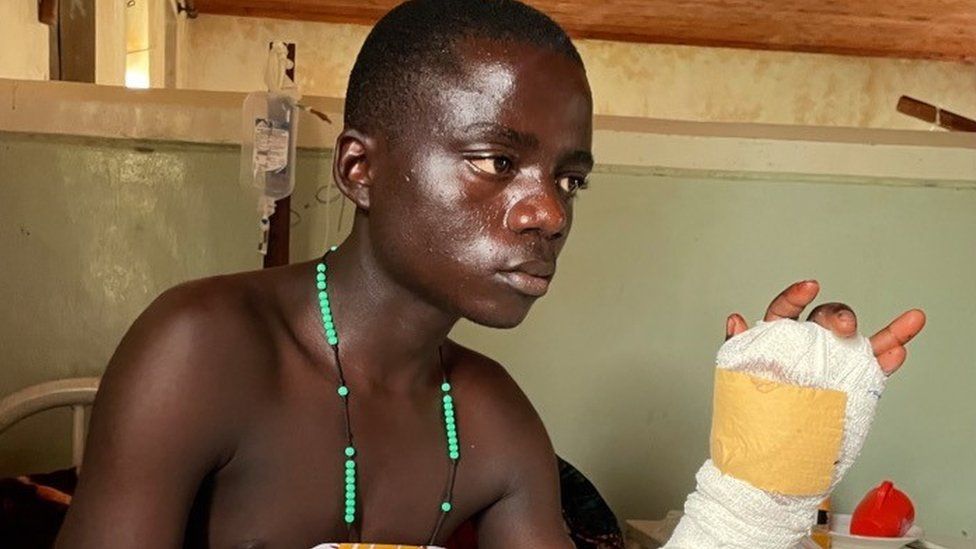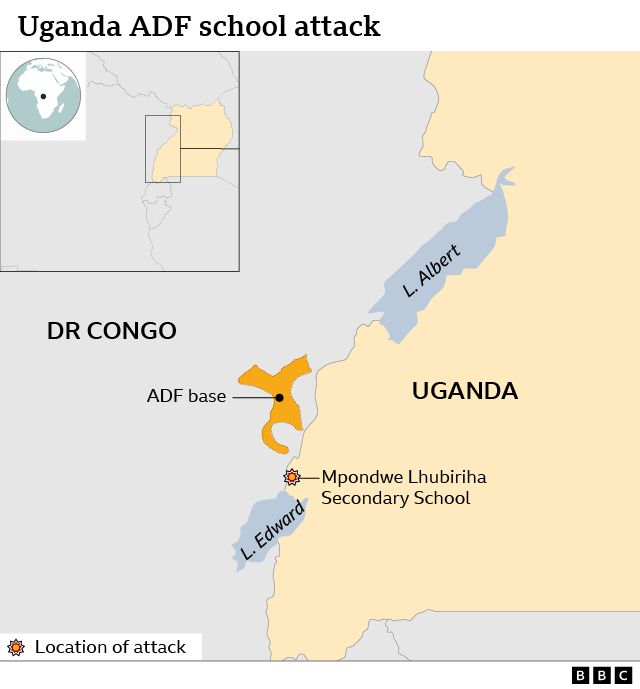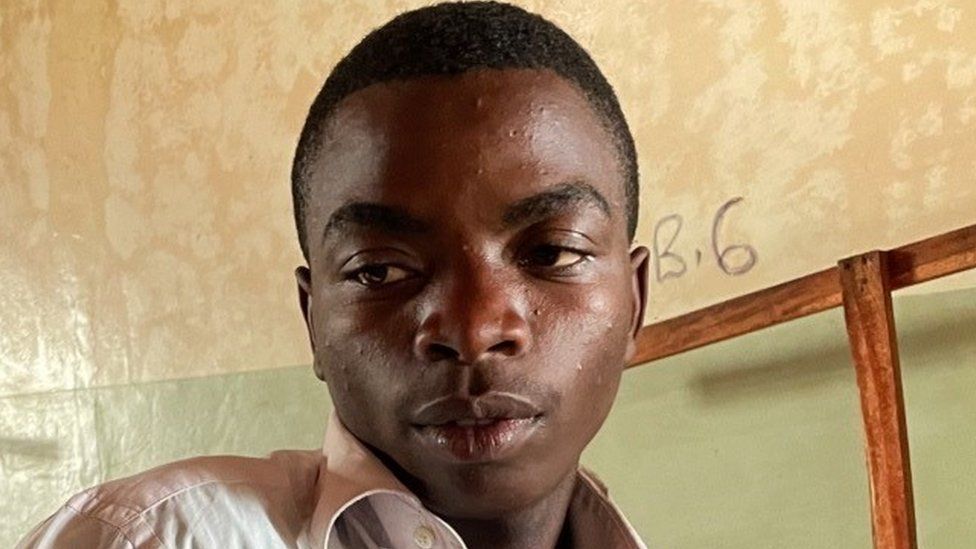Julius Isingoma, a student, told the BBC about how he miraculously survived a nighttime attack by alleged Islamist rebels on his dormitory at school in western Uganda.
When we first spoke with him at Bwera General Hospital in Kasese district, he claimed, "I smeared the blood of my dead colleagues in my mouth, ears, and on my head so that the attackers would think I was dead.
In the attack on the secondary school in the small town of Mpondwe on Friday night, about 40 people died, including 37 students.
Yoweri Museveni, the president of Uganda, attributed responsibility for the attack to the Allied Democratic Forces (ADF), adding that they may have been "working with other criminals because I hear that school had some wrangles.". Without going into detail, he made the promise to find the militants' hiding places in the Democratic Republic of the Congo, which is across the border.
As of yet, the ADF has not responded.
Asserting that the minority Muslim population was being persecuted, it formed in the 1990s and started using force against Mr. Museveni.
In 2016, its leader allegedly swore allegiance to the Islamic State (IS) organization.
However, IS did not publicly acknowledge its activity in the region until April 2019, when it claimed responsibility for an attack on army positions close to the Ugandan border.
The "Central Africa Province" (Iscap) of IS was denoted by this declaration.
As the militants fled to the DR Congo, six students are thought to have been kidnapped.
Six people, including Julius, survived the assault that lasted for a number of hours.
Although he did not give the attackers' names, he did say that they were armed men who started their attack at around 22:00 local time.
When they arrived at the boys' dorm, the students had already locked the door after realizing their safety was in jeopardy.
He claimed that when they were unable to open the door, they threw a bomb inside the dorm and then used hammers and axes to smash down the door.
When the militants entered the dorm, many of the students who had gathered as a shield near the door were shot to death while Julius was standing behind them.
Cries could be heard as the students were shot, chopped, or gunned down.
He quickly scaled the top of a bunk bed, took down some of the ceiling's wooden planks, and jumped inside to cover.
He then watched helplessly as the attackers brutally killed his coworkers, burned mattresses, and fled.
He recalled dropping back into the dormitory with a thud after becoming overcome by the smoke.
Insurgents returned after hearing the thud.
At that point, Julius understood he had to survive the assault.
"I quickly thought as I lay next to my friends' bloodied bodies. The militants arrived and checked my hand for a pulse before leaving, so I smeared a lot of blood in my ears, mouth, and on my head," Julius said.

In the same dorm as Julius was another survivor named Godwin Mumbere.
The 18-year-old remembered the attackers entering the dormitory for the girls, dragging them outside, and hacking them to death with machetes.
After entering the boys' dorm and breaking down the door, they began attacking the students inside.
Godwin's friends who were on top of the bed that he was hiding under were killed when it toppled.
He told the BBC that his assailants saw him but assumed he was already dead.
To make sure everyone was dead, they left and then returned to the dormitory.
At this point, he claimed, they shot him in the hand and started a fire in the dorm.
The screams of another student who claimed to be dying jolted Godwin back to reality.
He sprinted out of the dorm, scaled the school gate, and ran through a cocoa plantation to the closest hardware store. He arrived at a lodge and hid there until he was found.
Senior administrator of Bwera General Hospital Clarice Bwambare told the BBC that the hospital began receiving the bodies of students and residents around 1:00, or roughly three hours after the attack on Friday night.
He mentioned that of the 20 bodies they received, 18 of them were student bodies.
At the hospital right now, five survivors are getting well. A girl who is receiving critical care in the intensive care unit is one of them. Her severe head injury from being struck with a hammer by the rebels means that, according to a surgeon, she cannot be moved.
Only one body, according to Mr. Bwambare, had not yet been picked up from the mortuary.
According to Uganda's New Vision newspaper, grieving families laid to rest 21 of the students on Sunday.
Julius lamented his inability to attend their funerals as he lay in his hospital bed. He expressed his desire to be a soldier so he could fight back and defend the lives of his friends and coworkers.








